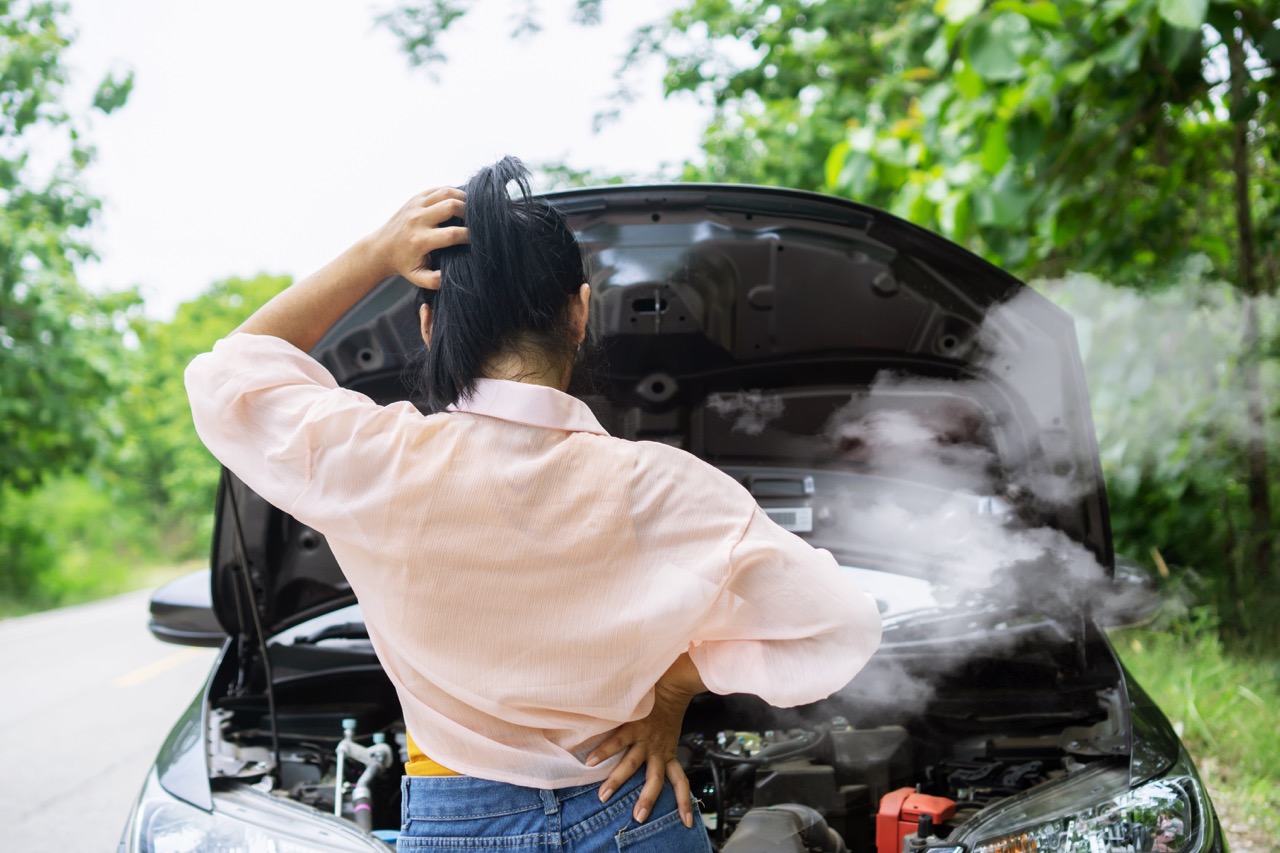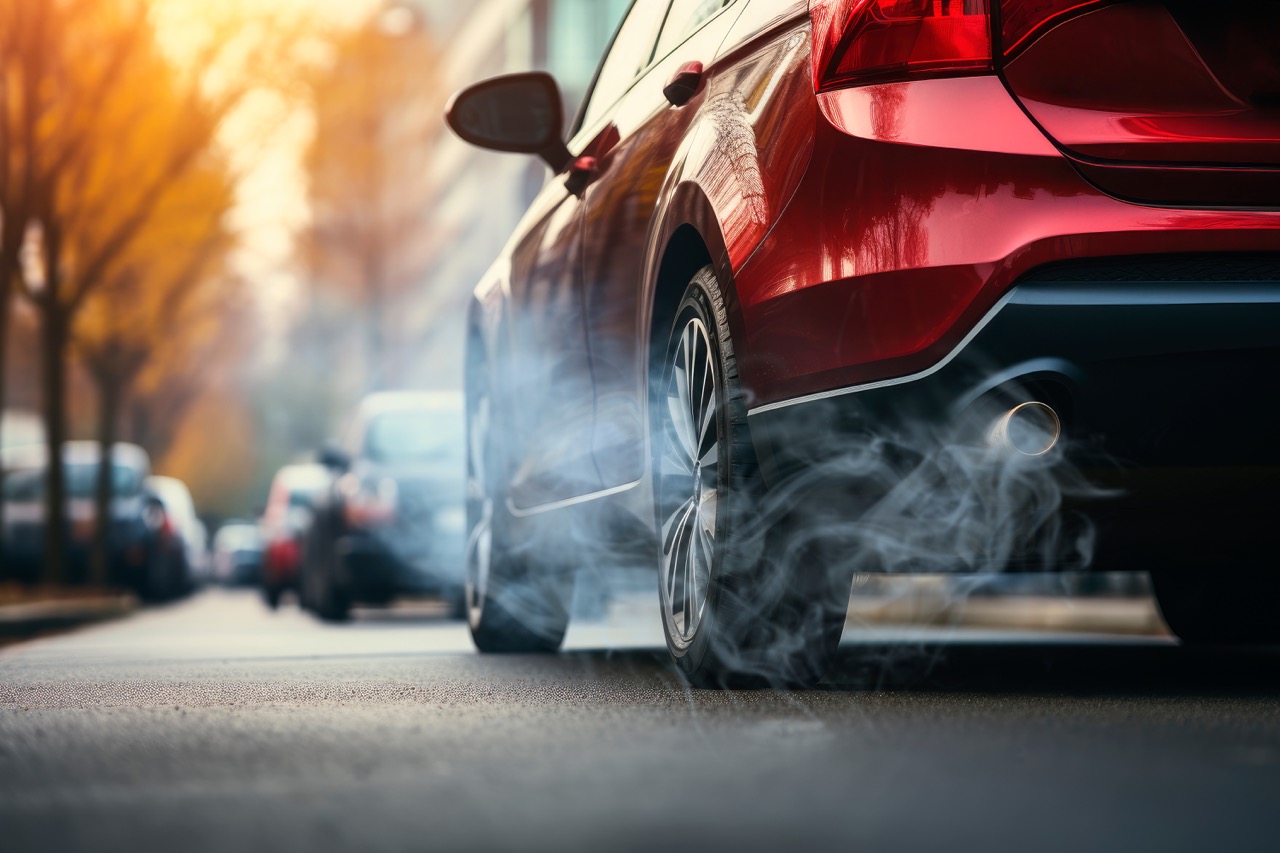
If your car is running hot, it can be a sign that something’s not right with your engine. Fortunately, diagnosing the cause of an overheating engine isn’t too difficult if you know what to look for and how to address it. Keep reading if you want to learn the most common issues that occur when engines overheat. We will provide you with tips on how to diagnose and fix them.
What is an engine?
An engine is a machine that converts fuel into energy. It is the most critical part of any vehicle and needs to operate within a certain temperature range in order to function properly.
What is the difference between an engine and a cooling system?
An engine is a complex system that utilizes fuel to create energy, while a cooling system keeps the engine from overheating and creating too much heat. A properly functioning cooling system is critical to ensure your vehicle runs smoothly.
Why do engines overheat?
COOLING SYSTEM LEAK
The most common reason for an engine to overheat is a cooling system leak. Coolant leaks can be caused by a cracked radiator, broken water pumps, or faulty coolant hoses. If your car is losing coolant levels rapidly and the temperature gauge starts to rise, you should pull over immediately and assess the situation.
FAULTY WATER PUMP
A faulty water pump can also cause your engine to overheat. The water pump is responsible for moving the coolant throughout the engine, ensuring that it remains completely cooled. Without adequate coolant flow, your engine will heat up and become damaged if left unchecked.
LOW COOLANT LEVELS
If your vehicle’s coolant levels are low, it could cause your engine to overheat. Make sure to check the coolant levels regularly so that you can catch any issues before they become a problem.
RADIATOR FAN FAILURE
Radiator fans are responsible for cooling the radiator and preventing overheating. If your car’s radiator fan is not working properly, it could cause your engine to overheat
THERMOSTAT FAILURE
A thermostat is responsible for regulating the engine’s operating temperature. If it fails, then your car may not be able to reach its normal temperature and could overheat.
Does the risk of overheating increase as a car gets older?
The age of the vehicle does not necessarily determine the risk of overheating, but it can play a part. As cars get older, they tend to accumulate wear and tear that could compromise their cooling systems. It is important to regularly inspect your car’s cooling system and replace any parts as needed.
What are the signs of an engine overheating?
If your engine is overheating, you may notice the following symptoms:
- Smoke coming from beneath the hood.
- A sweet smell in the air.
- Steam rising from under the hood.
- An increase in temperature gauge readings.
How should you troubleshoot an engine that is overheating?
The first thing to do when faced with an overheated car is to pop the hood and check the engine temperatures. If they are high, you should start looking at the following components:
- Radiator cap – This could be stuck or not sealing properly, preventing the coolant from circulating.
- Coolant hoses – Check for any cracks and leaks in the coolant hoses- Head gasket – The head gasket could be leaking, preventing the engine from regulating its temperature.
- Oil levels – Low oil levels can cause engines to overheat, so make sure that your oil level is where it needs to be.
Once you have inspected all of these components, open the hood and let the engine cool down before restarting it. Wait until the vehicle has cooled down before attempting to open the car hood.
What should you do if your car overheats in the middle of nowhere?
If your car overheats in the middle of nowhere, it is important to stay calm and turn off the engine. Wait for the engine to cool down before you open the hood. Once it has cooled, take a look around for any visible signs of problems like cracked hoses or disconnected radiator fans. If you are unable to identify and fix the issue, call a tow truck
If you suspect that your engine is beginning to overheat, there are a few things you can do to prevent it from becoming an even bigger problem. First, make sure that your car’s cooling system is in good condition and that the coolant levels are adequate. Make sure to check the radiator cap, coolant hoses, and head gasket for any signs of damage. Additionally, check the oil levels and make sure that your radiator fan is in working order.
Expert tip: Consider turning on the heater; it may seem contradictory, but doing so can effectively redirect hot air away from the engine. By doing this, you can effectively lower engine temperatures and prevent your car from overheating.
Tips to prevent a car from overheating:
Regular maintenance is key to preventing your car from overheating. Keep the following in mind:
- Check Coolant Levels Regularly – Make sure to have the coolant levels checked during each oil change. Having enough coolant is crucial to avoid overheating.
- Radiator Maintenance – Ensure your radiator is in top shape. Have it flushed according to your vehicle’s maintenance schedule to keep the cooling system functioning efficiently?
- Thermostat Inspection – Regularly inspect the thermostat to ensure it is in good working condition. A faulty thermostat can lead to overheating issues.
- Inspect Belts and Hoses – Regularly inspect the belts and hoses in your car for signs of wear and tear. Damaged belts and hoses can lead to a poorly functioning cooling system.
- Avoid Heavy Loads – Overloading your vehicle or towing heavy items can cause your engine to work harder, leading to overheating.
Remember, preventing engine damage due to overheating is far more affordable than repairing the damage once it’s done. Regular maintenance and inspections can go a long way in keeping your car on the road and out of the repair shop.
Related Posts
As an EV owner, understanding your vehicle's battery is critical. From its capacity to its lifespan, and everything in between, we'll guide you through what you need to know to optimize your EV experience. So buckle up and get ready - we're about to shed some light on the electrifying world of EV batteries. What [...]
If your car is running hot, it can be a sign that something’s not right with your engine. Fortunately, diagnosing the cause of an overheating engine isn't too difficult if you know what to look for and how to address it. Keep reading if you want to learn the most common issues that occur when [...]
Your vehicle's exhaust system serves a critical role in managing the byproducts of the combustion process and ensuring optimal engine performance. The appearance of colored smoke from the exhaust pipe, either when stationary or accelerating, can provide valuable clues to underlying mechanical issues. What is a car exhaust? A car exhaust is a system [...]




